Struggling with debt in San Diego? Our experienced bankruptcy lawyers help individuals and families eliminate debt, protect assets, and start fresh. Whether you need guidance on Chapter 7, Chapter 13, or stopping foreclosure, we’re the trusted San Diego bankruptcy attorneys clients count on.

When facing financial challenges, having the right bankruptcy lawyer in San Diego makes all the difference. At Bankruptcy Law Center, we offer:
Financial stress shouldn't define your future. Our bankruptcy attorneys in San Diego are ready to help you navigate this challenging time with dignity and emerge stronger on the other side.
Contact Bankruptcy Law Center today to schedule your free consultation and begin your journey to financial freedom.


Legal Disclaimer: The Bankruptcy Law Center is a California Licensed law firm with attorneys licensed in the state of CA. Attorney Ahren Tiller is responsible for this advertisement. Bankruptcy Law Center’s principal office is located at 1230 Columbia st. Suite 1100 San Diego, CA 92101. Prior results listed on this site do not depict or in any way infer a prediction or outcome. Bankruptcy Law Center is a debt relief agency proudly providing options to people with financial problems. View our Privacy Policy
© 2026 All Rights Reserved.